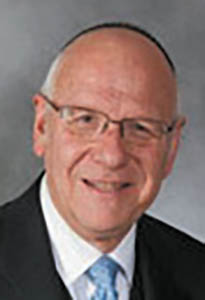
Parshat Vayigash
The climax of the Yosef saga is presented to us in this week’s parsha as Yosef, moved by the words of his brother Yehuda, reveals his true identity to his brothers and a tearful reunion ensues. A similar dramatic reunion is predicted by the navi Yechezkel in this week’s haftarah as he sees the two kingdoms of Israel, represented by Yehuda and Efrayim (Yosef’s son), united once more after years of separation. The navi dramatizes this prophecy by taking one branch with the name “Yehuda” carved upon it and another with the name “Efrayim” upon it and holding them together as God miraculously joins them into one branch.
The reunification of the tribes of Israel is not a result of redemption but a necessary requisite for the ultimate geula. This was true of the past as well, for the Book of Bereishit would not have come to a fitting conclusion, nor could Am Yisrael, the nation of Israel, have been formed, nor would the Israelites have been redeemed from Egyptian slavery without the family of Yaakov becoming an inseparable unit, as once it had been.
The overarching theme of Yechezkel’s prophecy in this haftarah is the reunification of our people, and it is especially interesting to note that this nevuah follows Yechezkel’s well-known prophecy of the valley of the dry bones. There, the navi shares Hashem’s promise that, although the post-churban generation sees itself as lacking any hope for the future (“avda tikvateinu”), God will breathe life into them and bring them back to their land. This following prophecy indicates that the redemptive process would continue with a re-connection of the long-fractured nation, for only then could the geula process and the return to the land be complete.
Hashem’s cry that no one should be left behind speaks to us today. The challenge of creating an inclusive atmosphere within klal Yisrael is one that we dare not fail to meet. It is a necessary component to hasten our redemption. We must do more than sing and pray for Mashiach.
We must work to bring us all together.
By Rabbi Neil N. Winkler










